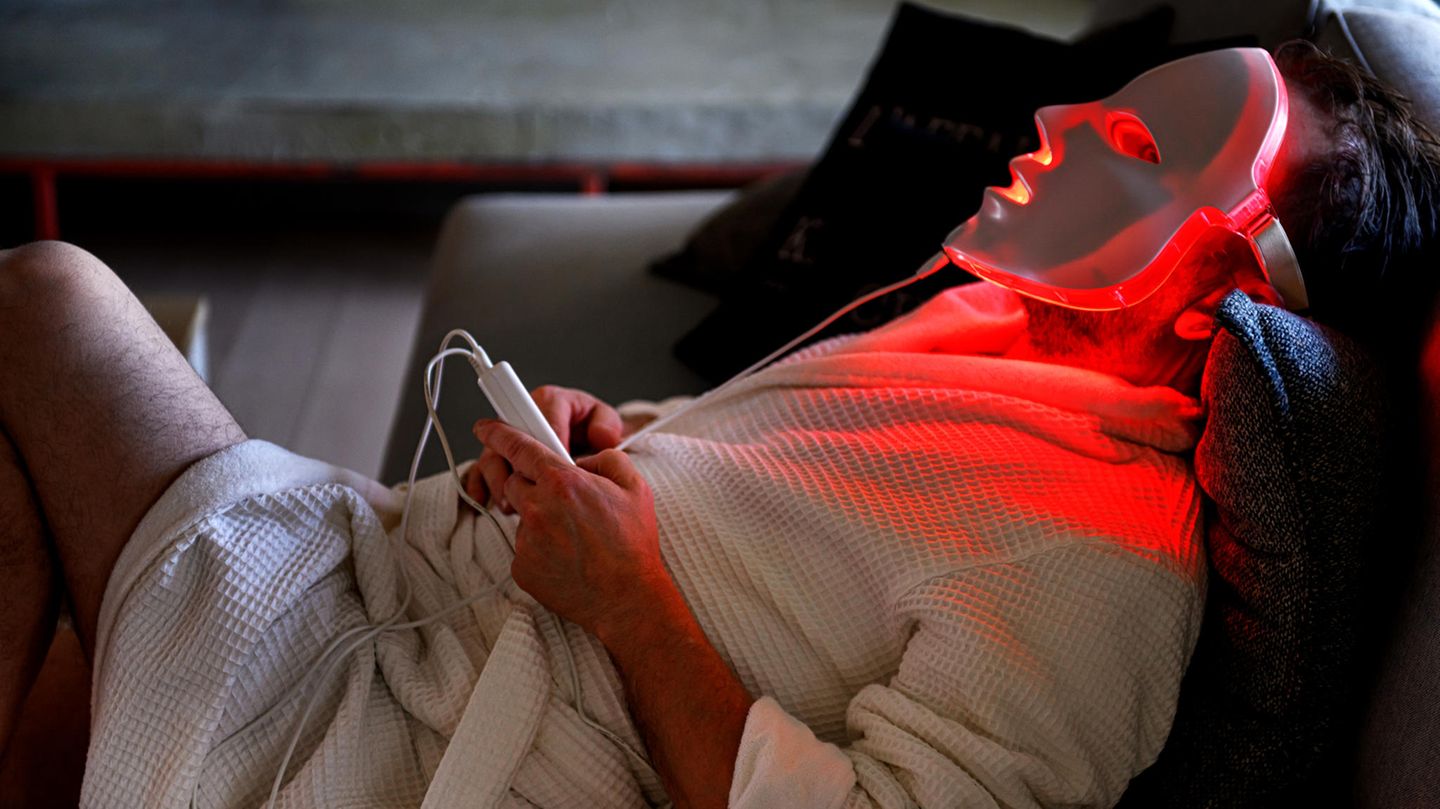Whether an intraocular pressure measurement or an ultrasound of the ovaries for cancer screening – there are examinations that patients have to pay for themselves. These self-pay services are often useless according to the current one.
During my annual check-up at the gynaecologist, a smear is taken, a palpation examination of the breasts, the genital area and the uterus. All this is paid for by the statutory health insurance for women my age (under 35 years of age). But before the examination, I have to fill out a sheet asking whether I would like an additional examination in addition to the standard check-up. For example, the ultrasound of the ovaries for cancer screening for around 35 euros. The health insurance companies do not pay for this examination as long as there is no concrete suspicion. The precautionary check is an individual health service (IGeL for short) – i.e. a self-payer service.
The reason why the health insurance company does not pay for examinations such as an ultrasound of the ovaries for cancer screening in healthy patients does not mean that the statutory health insurance companies are stingy per se. However, they do not cover the costs of medical check-ups without a reason. After all, health insurance companies cannot arbitrarily decide which examinations they pay for and which they don’t. You must act in accordance with the provisions of the fifth book of the Social Security Code. “Anyone who has statutory health insurance is entitled to benefits for the prevention, early detection and treatment of diseases,” informs the consumer advice center. In addition, health insurance companies evaluate scientific studies before examinations are accepted by the health insurance company. And weigh the costs, benefits and harm.
However, there are also individual health services that per se would not end up in the health insurance company’s catalog of services because they are neither early detection nor therapy. For example, private vaccinations before long-distance travel or sports examinations.
IGeL Monitor: Only two self-pay services are positively rated
There is a wide range of IGeL from ultrasound of the ovaries for cancer screening, to measurements of intraocular pressure to couple therapy. According to the consumer center, there is no list of all self-pay services. “Doctors can offer additional services that they develop themselves or have taken over from companies that specialize in IGeL,” writes the consumer advice center on its website. These self-paying services can be offered without a quality check, it says there.
The IGeL monitor from the medical service has been evaluating self-payer services since 2012 on the basis of scientific studies and medical guidelines. The balance sheet: Out of 55 IGeL, 53 services are rated as “negative”, “tends to be negative” or “unclear”. According to the reasoning of the IGeL monitor, there is not enough evidence for most of the self-payer services. Only two performances are rated as “tends to be positive”. This is acupuncture for migraine prophylaxis and light therapy for winter depression.
Ultrasound of the ovaries for cancer screening was offered most frequently
For the fourth time, insured persons have been asked about their individual health services and the results have been published in the IGeL Report 2023. In addition to the evaluation of the additional services, a ranking of the most frequently offered health services is also listed there. Ultrasound for early cancer detection of the ovaries (cost: 35 to 53 euros) and the uterus (cost: 12 to 27 euros) came in first. The examinations are rated as “negative” and “tend to be negative”. The reason for this rating: They often lead to false alarms. As a result, there could be further unnecessary investigations, according to the report. “The often young women are frightened and frightened unnecessarily. The examination has no use as early detection, but it can definitely do harm,” said Dr. Stefan Gromemeyer, Chairman of the Medical Service.
Top 10 IGeL services in 2023 according to respondents in percent
14 percent: ultrasound of the
uterus and/or the
ovaries
11 percent: intraocular pressure measurement
or without an ophthalmoscope
Glaucoma Early Detection
9 percent: Swab for early detection of
cervical cancer
(thin layer cytology)
6 percent: PPE regulation for
Early detection of prostate cancer
5 percent: Skin cancer screening outside
of skin cancer prevention
Statutory Health Insurance,
possibly computer-aided
5 percent: Ultrasound of the breast for
early cancer detection
4 percent: blood count for
health care
Ultrasound in the
4 percent: pregnancy (additional
Investigation on the by the
health insurance paid
examinations)
3 percent: Retinal examination with
Laser for glaucoma early detection
3 percent: Retinal examination with laser for early detection of macular degeneration
No Evidence of Hemodialysis or Hyperbaric Oxygen Chamber in Long Covid
This year, for the first time, the report also addresses health services that are offered for the treatment of post- and long-Covid. The so-called hyperbaric oxygen therapy (oxygen hyperbaric chamber) and HELP apheresis (blood purification). They are intended to relieve symptoms such as shortness of breath, exhaustion and the consequences of a limited ability to concentrate. Both therapies are offered for several thousand euros. According to the IGeL report, however, there are no clinical studies for either method that can confirm the effectiveness of just those therapeutic approaches.
For the report, 6,000 insured persons aged between 20 and 69 were asked about the IGeL. Almost all respondents are familiar with the self-payer services (80 percent of those surveyed) – however, only around a quarter of those surveyed said they knew that there are binding rules for the sale of IGeL. Among other things, patients must be informed about the benefits, possible risks or harm. More than half of those surveyed aged 20 to 29 consider self-pay services important for maintaining their health.
No information about possible damage
The survey also shows that 56 percent of those surveyed stated that they had not been informed about possible damage caused by a self-payer service. The majority of respondents (78 percent) stated that they had been informed about the benefits. Almost every fifth person even states that their treatment with a health insurance benefit was made dependent on the purchase of an IGeL.
In the IGeL report, the insured were also asked how much money they spend on healthcare services in a typical year: 75 percent of those surveyed spent between 15 and 249 euros. How reliable the information is, however, is questionable. Because: The respondents were asked about a typical year – what a typical year is, however, can be defined differently by each respondent. And: Probably not everyone remembers exactly how much they have spent on additional services in recent years.
Criticism of the IGeL monitor
The IGeL monitor has already been criticized by medical associations in the past. Among other things, the methodology of the survey was criticized and the independence of the IGeL monitor was questioned. He was also seen as the voice of the health insurance companies, as reported by the “Ärzteblatt”.
The IGeL monitor (and the report) are published by the Medical Service Bund. This is borne by the medical services in the countries. This means that it is financed, among other things, by the state associations of health insurance companies.
Breast Cancer, Chlamydia, HPV
Which check-ups really make sense for women
Checklist for patients of the German Medical Association
Another source of information for patients is a patient guide to healthcare services published by the German Medical Association. This was last updated in 2015. Patients are given questions that they can ask during consultations with the doctor about self-paying services. These checklists can help patients to check whether they have been informed factually by the doctor.
What does this mean for patients who are in the doctor’s office and are offered a self-pay service? Anyone who is offered a check-up by their doctor, for example, which they would have to pay for themselves, should first ask questions. The doctor should be asked what the examination will do in the individual case and what the risks are. If the possible harm and risks are not explained, this is not sufficient information for patients to make a good decision.
Sources: , ,
Source: Stern
I’m Caroline, a journalist and author for 24 Hours Worlds. I specialize in health-related news and stories, bringing real-world impact to readers across the globe. With my experience in journalism and writing in both print and online formats, I strive to provide reliable information that resonates with audiences from all walks of life.




